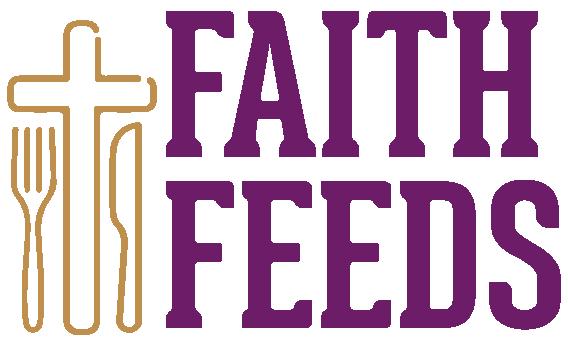
Having a faith conversation with old and new friends is as easy as setting the table.


Having a faith conversation with old and new friends is as easy as setting the table.
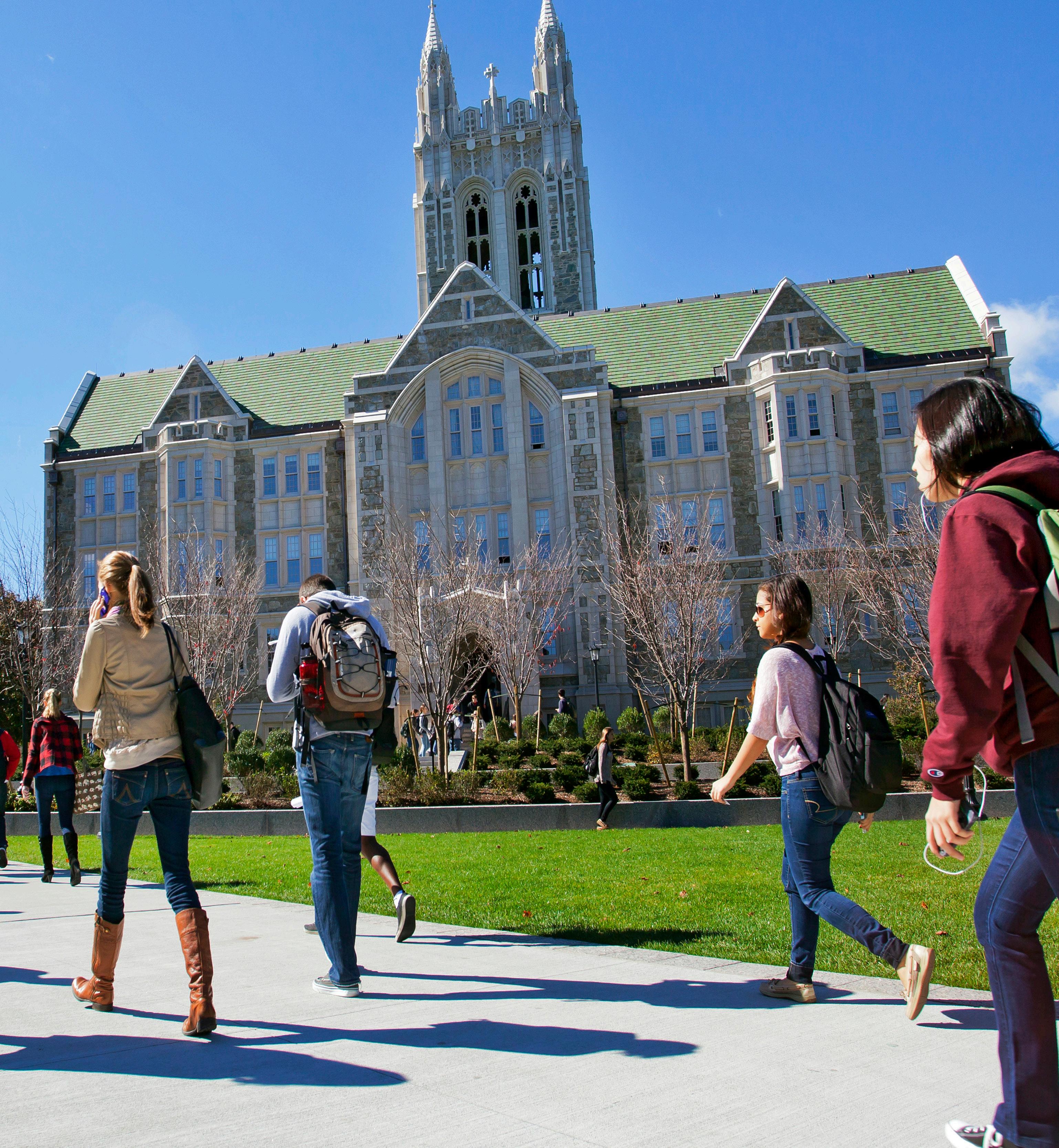


Introduction to FAITH FEEDS 3
Ready to Get Started? 4
FRIENDSHIP 5
• A Promise to a Friend by Jack Dunn 6 Conversation Starters 8
• Negotiating Relationships by Kerry Cronin 9 Conversation Starters 10
• Deep and Abiding Friendship Lasts Forever by Robert Newton 11 Conversation Starters 13
GRATITUDE 14
• Born on Third Base by William Neenan, S.J. 15 Conversation Starters 16
FORGIVENESS 17
• A Time to Forgive by Stephen Pope 18 Conversation Starters 19
FAMILY 20
• On Faith and Family by Fr. Michael Himes 21 Conversation Starters 22
SERVICE 23
• The Beauty of Being with the Poor by Fr. Michael Himes 24 Conversation Starters 26
MENTORSHIP 27
• Why Mentors Matter by Fr. Ken Himes 28 Conversation Starters 30
DISCERNMENT 31
• Characters that Shaped my Character by Bennet Johnson 32 Conversation Starters 34
TRANSITION 35
• God Works by William P. Leahy, S.J. 36 Conversation Starters 37
• My Favorite Mistakes by Mary Troxell 38 Conversation Starters 40
• Gathering Prayer 41


The FAITH FEEDS program for High School Students is a catalyst for faith conversation and community building in high schools. Students gather over lunch and a host facilitates a conversation using the themes, articles and discussion questions in this Guide.
The Guide was developed from popular Agape Latte talks and articles from the C21 Resources magazine.
The FAITH FEEDS Guide offers an easy guide for planning and the content highlights the following themes: Friendship, Gratitude, Forgiveness, Family, and Service. You will notice that the Friendship section offers four articles instead of just one. You can decide to discuss each article over the course of the trimester or just tackle one and move on to the other themes.
The Faith Feeds program is very pliable, offering you a chance to be creative with the content. The C21 Center is happy to offer FAITH FEEDS napkins, stickers, and gathering prayer cards. There are also FAITH FEEDS totes for give-away items.

STEP ONE
Decide to host a FAITH FEEDS. Think of a comfortable space, conducive for conversation. Select a theme/article for your FAITH FEEDS conversation.
STEP TWO
Reach out to your students and let them know the FAITH FEEDS date/s /time/location and theme in advance. Arrange for coffee, pizza, or food.
STEP THREE
Reach out to Karen Kiefer (karen.kiefer@bc.edu) at the C21 Center and request FAITH FEEDS swag, including napkins, stickers, gathering message/prayer cards and FAITH FEEDS totes for give-a-ways.
STEP FOUR
Review selected article and questions in advance of your FAITH FEEDS. Conversation will grow organically. Enjoy!

by Jack Dunn
I went over to Greece to visit with Nick, and on my last day there I said to him, “There’s something I need to tell you: I love you, and I’ve cherished every day of my 30-year friendship with you.” He said to me, “I love you, too, and I know I’m going to die, but I need you to know that I’m happy, I’m at peace, and I believe that we’ll see each other again in the Kingdom.”
His words were the most profoundly beautiful thing a friend had ever said to me. Here I was angry at the world and feeling sorry for myself, and here he was confronting the cruelest of illnesses, and somehow he was happy, he was at peace, and he was thinking about God’s Kingdom.
I left him that day and promised that I would be back to see him as soon as I could. I fulfilled my promise and returned around six months later. Upon arriving, I noticed how much he had declined. He was confined to a bed and a chair, and his speech was now slurred. On the last day of my visit I said to him, “I can’t explain this, but I need you to tell me what I can do for you. It would do me wonders to do something for you.” He said, “There is something that I’d like you to do.” I said, Anything, anything at all.” And he said, “I want you to go to Confession.” Confession? I was shocked. I thought he was going to ask me to run a marathon in his honor, start a scholarship, find a cure, paint his house, anything. But Confession? I had not been to Confession in years. I guess I just could not go there. I went to Mass faithfully every Sunday and offered my sins up to God, but I could not embrace the sacrament of reconciliation. I was hurt and angry over the losses I had endured, and I selfishly felt that I was owed more than I was getting in return.
So I returned home, having made a deathbed
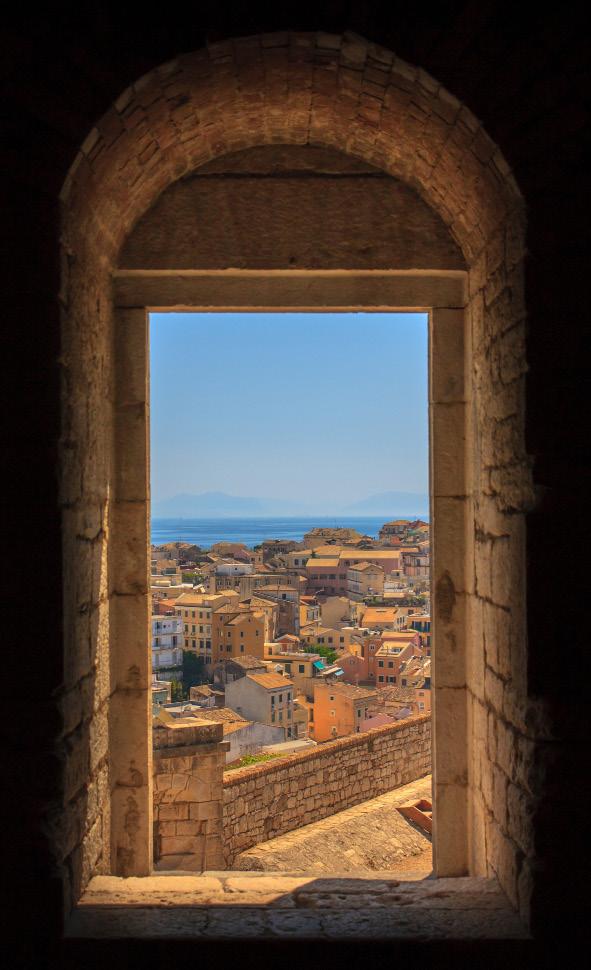
promise to a dying friend that I would go to Confession. And I did what guys always do: I put it off. I put it off until the week before I was scheduled to return to Greece to see my friend. That Sunday before my trip, the priest talked at Mass about an Archdiocesan initiative called The Light Is On for You, where local parishes offer the sacrament of reconciliation on Wednesday evenings from 6:30 to 8 p.m.
The Wednesday evening before my Thursday flight, I set out to fulfill my promise. I went to my parish in the town where I live. I walked up the stairs, still not embracing the concept, but knowing what I had to do. I entered the church and saw my pastor entering into the confessional to hear confessions. I said, “Time out. I know him. He knows me. This is too personal. This won’t work for me.”
So I left and went to a different church on the other side of my town. The format in this parish is to go into a small room, shut the door, and sit face-to-face across from the priest for an open confession. I did not like it. I thought, “This is too informal. I’m out of here.” So I left and I drove to a different town.
I went into a church in a neighboring town and was sitting in the pew, awaiting my turn to go into the confessional, when I looked to my right and suddenly saw the mother an ex-girlfriend - a girl I had dated in college - enter the church. I thought, “I have 20 years’ worth of sins, and the mother of my ex is going to see me in Confession for a half hour!” All I could picture was her calling my ex-girlfriend and saying, “I saw that no-good former boyfriend of yours at Confession last night, and he was in there for 30 minutes! Thirty minutes’ worth of sins. It’s a good thing you dumped him when you did!”
I got in my car, drove down the street, and eventually came to St. Anne’s Parish - St. Anne, the mother of the Blessed Mother. I walked into St. Anne’s and as I was going up the stairs, the church lights were suddenly turned off. I looked at my watch. It was 8:30. I had blown my chance. I could not believe it. I had reneged on a promise to my dying friend. I was furious with myself. Then, amazingly, the parish priest looked out and realized that I was standing on the steps. So he turned the church lights back on, unlocked the door, and went into the confessional, illuminating the light above. I entered the confessional, knelt down and said, “Bless me Father, for I have sinned. It’s been 20 years since my last Confession, and I’m here only because I promised my best friend that I’d do this. So
please forgive me. Here are my sins…”
I let it all out - 20 years’ worth of sins, regrets, mistakes, everything. And when I finished, in the kindest of voices, the priest said to me:
“You have to understand that God loves you. He loves you unconditionally and He forgives your transgressions because He made you and He understands you. God wants more than anything for you to be happy. So all this baggage that you’ve been carrying around for 20 years, let it go. Let it go, because God wants you to be free to live your life to the fullest. All He asks is that you go forth and do your best to sin no more.”
Overcome with emotion, I thanked him, and as I got up to leave, he said, “And one more thing: You have a hell of a friend.”
I cannot explain it in any other way, but I felt as if the weight of the world had been lifted from my shoulders. I felt joyous. I felt liberated from the burdens I had carried in my heart for years. I went home, and the next day I kissed my wife and my kids and flew to Greece to see my dying friend. Upon arriving, it was clear that he had worsened. He was very thin, and could no longer speak, but his eyes lit up when I walked in. I said, “Nick, I have something to share with you. I went to Confession as you asked and I feel wonderful. I have never felt better. I will never be able to thank you for what you did for me.”
And he burst into tears.
Jack Dunn is Associate Vice President for University Communications at Boston College.


“Stories shape who we are, where we come from, how we understand ourselves.”
—Brian Braman, Professor of the Practice of Philosophy, Boston College
Summary:
Jack Dunn recounts a pivotal moment in his own faith journey in which he makes a promise to a dying friend that he will return to the sacrament of Confession. Despite facing internal and external roadblocks, Jack is ultimately able to make good on his word. In the end, he shares that he gained more than he gave in the process.
1. What have been the pivotal moments in your own faith journey?
2. What are the friendships and relationships that have shaped your faith?
3. Are there aspects of faith that you’d like to reintroduce into your routine or revisit?
4. Have you had a similar, life-changing experience with Confession or the Eucharist?
by Kerry Cronin
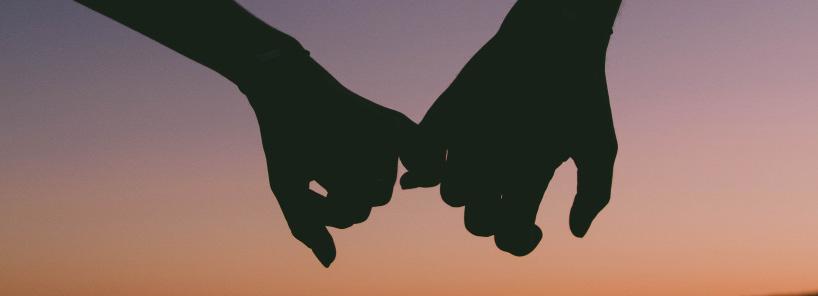
Kerry Cronin, associate director of the Lonergan Institute at Boston College, speaks to students about relationships, dating, the hook-up culture, taking risks and finding God. Here’s an excerpt from the Agape Latte talk.
The thing about in college is this: You could date someone, go out, have a good time, then have a fight and a breakup, then get back together again, then meet their parents, have drama, break up again, get back together again, and really solve your problems all in about 10 days. This is because life is so intense in college.
Ultimately, it takes time to reveal our feelings to ourselves and to another person. That is what dating should be in that first level. What you are doing is just finding out if you want to reveal yourself to that person. Then, in level two you open yourself up. The revelation that dating can precipitate for us on this campus is something that I think we really long for and want to strive for. It would be a great if we could expand the conversation on campus. We could begin to move past the thought that I hear from students of, ‘yeah, I wish it weren’t this way, but it is. We just don’t date. We just don’t do that thing.’
This dating culture could really happen. Part of what makes creating a healthy dating scene difficult because the campus so polarized. It is so strangely
awkward or freakish to date somebody. The hookup scene is so ugly and weird that people just opt out or they get into serious relationships way too fast.
I want to end with an email I received from a student to whom I had been talking for a while: ‘Meredith and I are a couple now. I’m so happy that we’re together. Thank you for encouraging me to do this. She’s an incredible person and I think we complement each other very well. She’s met my friends and she fits in with them. I made sure that they would be themselves, mostly to shield her. We can be a pretty obnoxious crowd. My friends didn’t disappoint. Meredith was able to be herself among them and so was I. She met my mom and sister on Monday when they drove me back after a long weekend. It was only an hour. It was a good first date with the family. I’ll meet her family on Sunday. I am big time nervous, but I’m hopeful.’
What I wish for this campus is for each of you to go and talk to six people on campus about this dating idea. Then, ask somebody out. Whether or not it is a crazy idea, real intimacy in friendships is fantastic, but what I hear from students is a deep longing for the kind of relationships that we are not really getting to have in college. Get out there and go on a date!
Kerry Cronin is associate director of the Lonergan Institute at Boston College

“The opposite of Loneliness is not Togetherness. It’s Intimacy”
—Richard Bach
Summary
In an excerpt from one of her Agape Latte talks, Professor Kerry Cronin shares her desire for Boston College students: that they recognize the deficiencies of the hook-up culture and find the courage to pursue meaningful dating relationships built on mutual trust and steady self-revelation.
1. Cronin posits that most students wish that a healthy dating culture would replace the hook-up culture. Do you agree with her assessment? What are steps that can be taken to make that a reality?
2. It seems like people experience loneliness whether they participate in the hook-up culture or choose not to. What are ways to overcome loneliness at Boston College? Where can students find support to find meaningful relationships, conversations, and experiences?
3. For persons of faith, we believe that our human relationships should model our relationship with God, who reveals Himself to us little by little over time, building up trust and making room for vulnerability. How does your faith life inform your most intimate relationships with friends, family members, or the person you are dating?
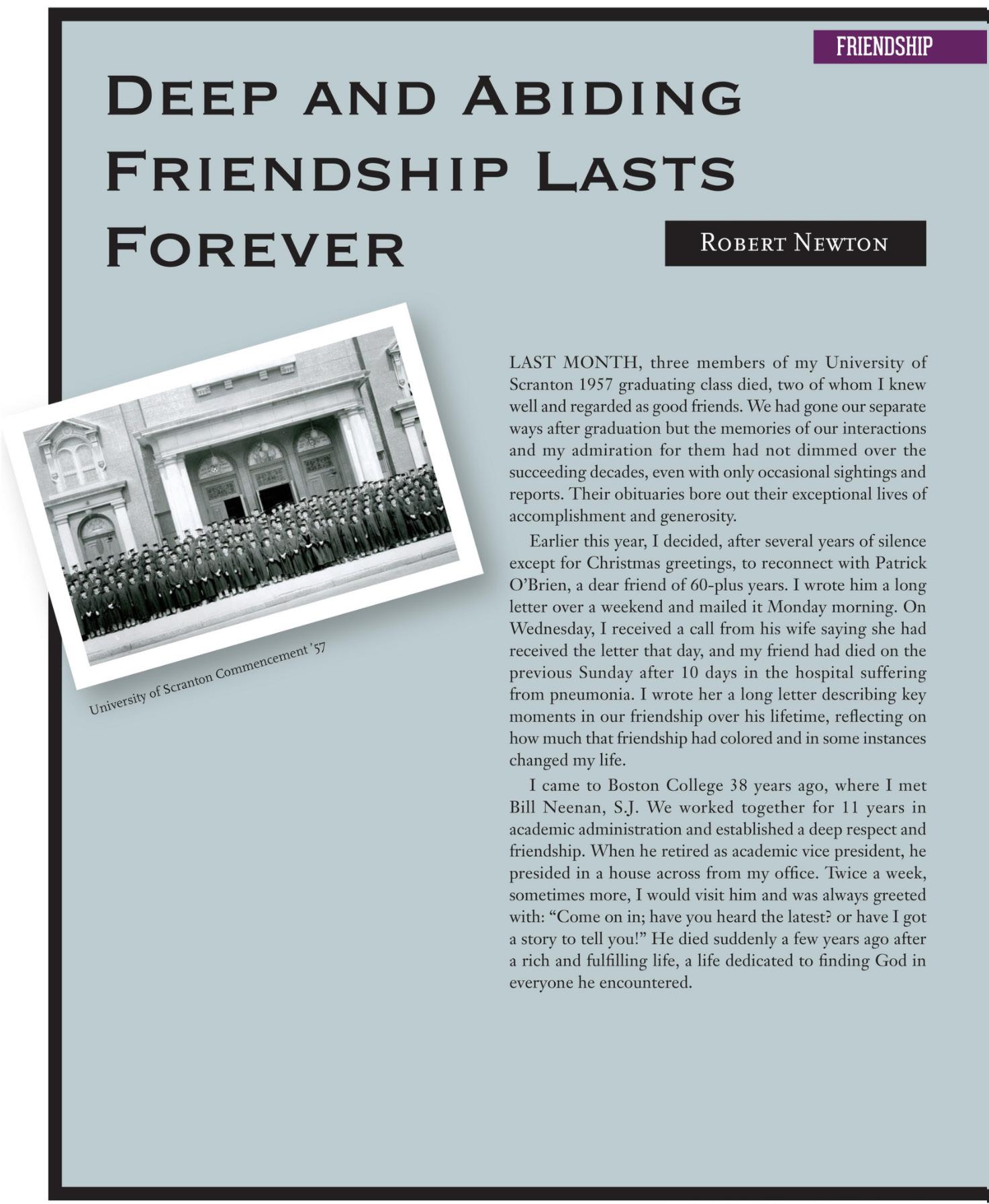
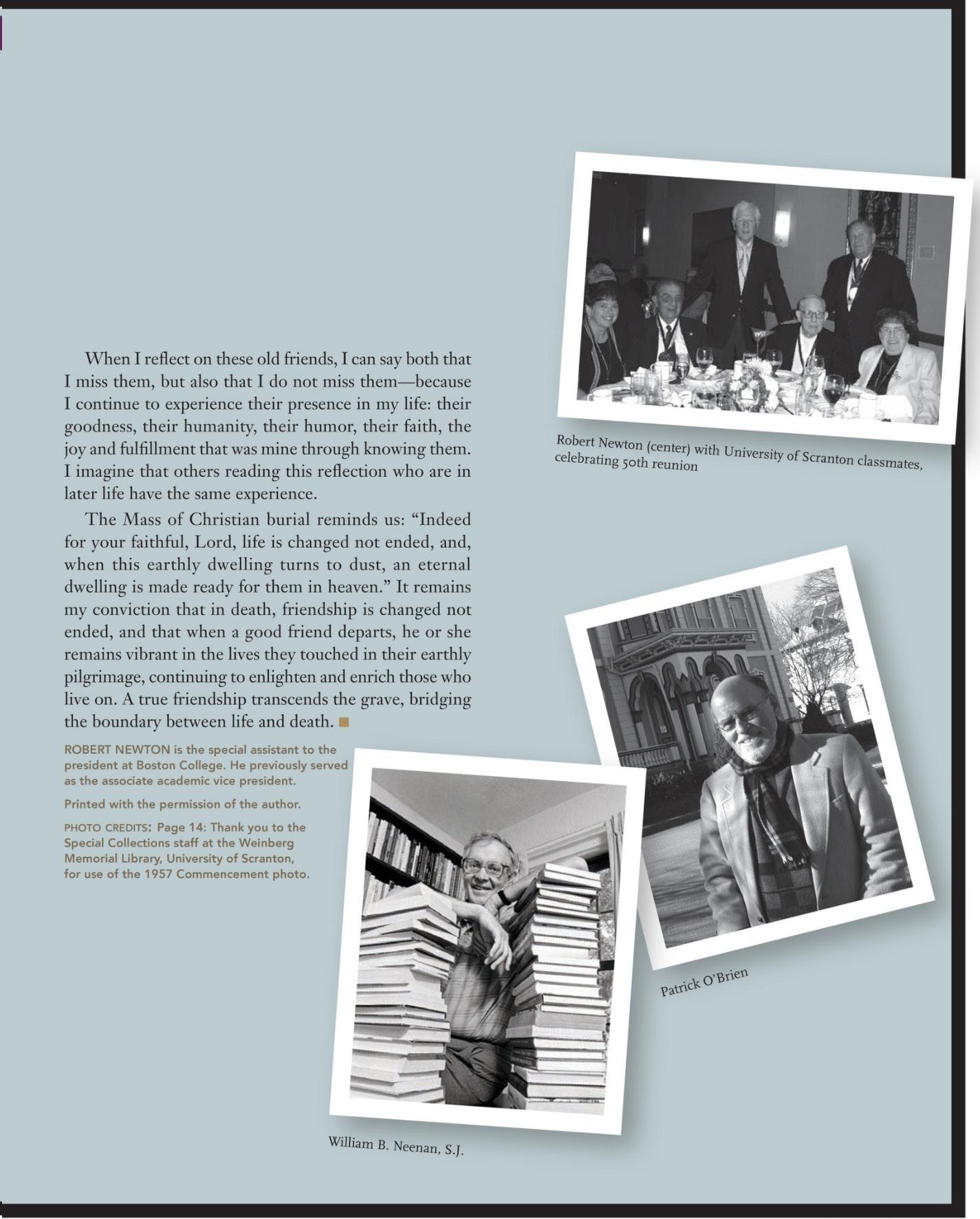

“Friendship ... is born at the moment when one man says to another ‘What! You too? I thought I was the only one…’” —C.S. Lewis, The Four Loves
In this piece, author Bob Newton reflects on several unexpected but enduring friendships. Newton details the pivotal and life-changing roles certain friends played in his life and the qualities that he most admired in them. In the end, Newton makes the claim that true friendships endure even with the passage of time and can transcend the grave.
• What are the qualities that you look for in a friend?
• What do you hope your friends say about you?
• Is it important to you that your friends share your values or faith? Why or why not?
• Do you agree with Newton’s claims that our friendships last beyond death?
• Pope Francis often says that “God is full of surprises.” Oftentimes, the people who become our closest friends come to us as a surprise. Have you had unexpected friendships? Have you considered how they might be God’s “surprise” gift to you?
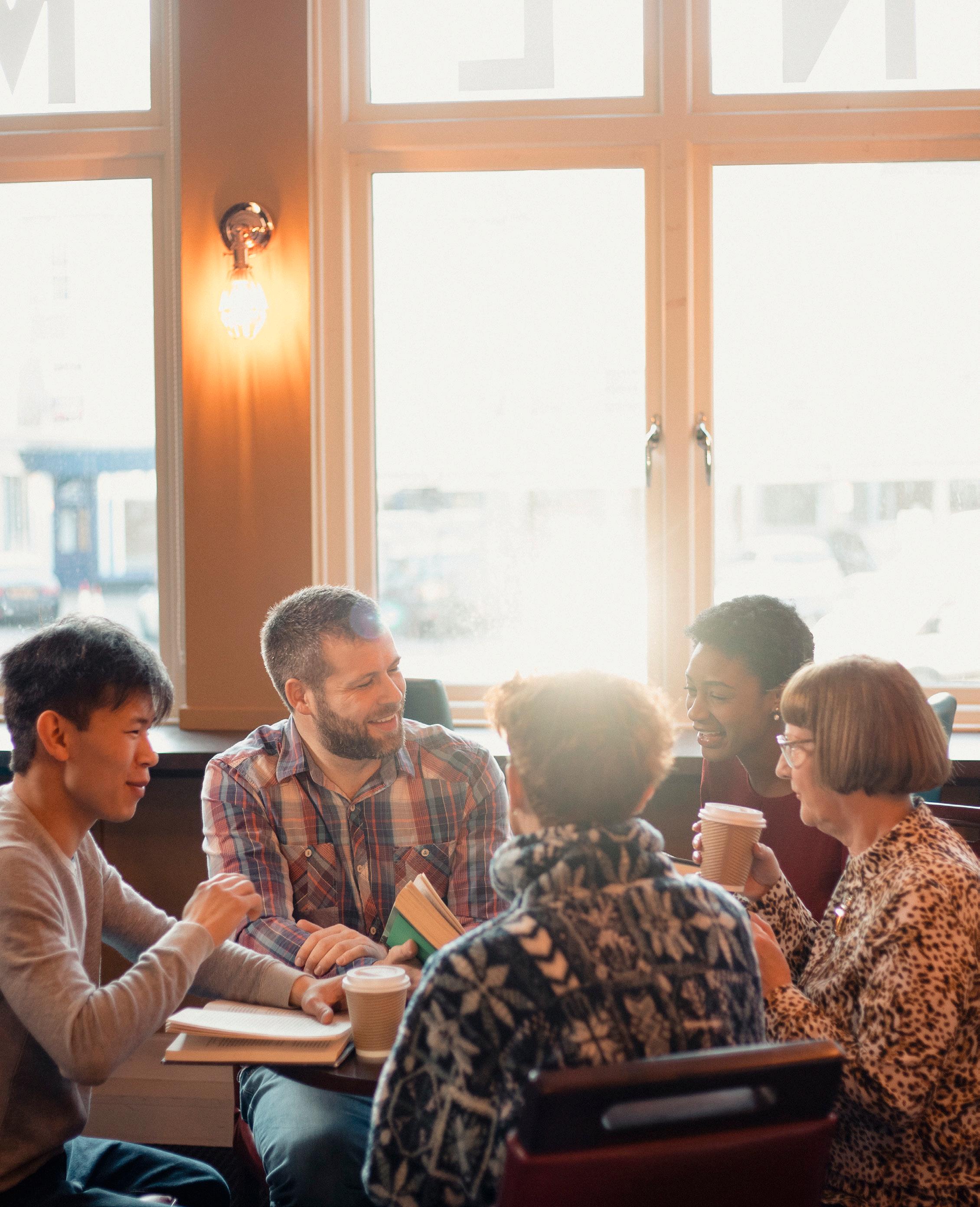
by William B. Neenan, S.J.
William B. Neenan, S.J. spoke to the students about some of the lessons he learned in life, and he passed away two months later. Here's an excerpt for the Agape Latte talk:
I’ve learned that there’s nothing to be learned from losing a game twice. When you lose once, you learn something. The second time around, you ain’t learned nothing. That’s one thing.
The second thing I’ve learned is the longest river in the United States is the Missouri River. Not the Mississippi River, which all of you people that somehow sneaked into Boston College erroneously thinking that the Mississippi River was the longest – you are dead wrong. Google it when you get back to your apartment. So those are two things I’ve learned.

The third thing I’ve learned is you were born on third base – all of us. We have people here of a lot of different traditions. Whether you’re Catholic, Jewish, Unitarian, Methodist, Muslim – whatever you are, this has been passed on to you. It’s been passed on to you. And here we are.
John Bapst was a Jesuit in 1855-ish. He used to come down from Canada and celebrate Mass with the French Canadian Catholics. Maine, at that time, had very few Catholics. In fact, there was a lot of anti-Catholic prejudice against the French Canadians. He came down to this French Canadian family, and he was celebrating Mass in the home. And this family had three kids in the Ellsworth public schools.
In those days, you had to read the Bible, and you
had to have the King James translation of the Bible. The King James is named after King James of England. I grew up as a little boy – that was the Protestant translation. Well, this was a Catholic family, and they had the Catholic translation, which was called Douay-Rheims – two towns in Europe where the Bible was translated. They had that. But they wouldn’t allow this family to use the Catholic translation. Father Bapst said, “No, you got a right to do it.” Use it. Well, he got in trouble. And the people in Ellsworth, Maine, drove him out of town and said, don’t come back, because if you come back, you’re in real trouble.
Well, he came back about six months later. And he was celebrating Mass in this house, and the people of Ellsworth knew he was there. They got him. They dragged him out. They tarred and feathered him. Now tar – you know what tar is? It’s that hot black stuff. They poured that hot black stuff on him. Then they took feathers. You guys know what chickens are – you’ve seen a chicken – that’s feathers. They stuck the feathers on him. And they tied him to a tree, and they started a fire at his feet. They were going to burn him to death. And the Presbyterian minister in Ellsworth intervened and saved his life.
That’s Bapst – John Bapst. He was the first president of Boston College. We are here today, all of us, on third base because people like Bapst did what they did and founded Boston College.
WILLIAM B. NEENAN,
S.J. (1929-2014) was Vice President and Special Assistant to the President at Boston College.

“Always be ready to give an explanation to anyone who asks you for a reason for your hope…”
—1 Peter 3:15
Summary
In an essay adapted from his 2015 Agape Latte talk, the late William B. Neenan, S.J., explores the idea that we are, in many ways, the sum of the stories and sacrifices of those who came before us. Our own story is shaped by the faith lives of others and the points of intersection between their lives and ours.
Questions for Reflection:
1. Many of us have a lot of people to thank for helping us to get to where we are today. Who are some of the people God has put in your life who have helped shape your story?
2. Father Neenan shares that life has a lot of lessons to teach us. Can you share some of the lessons that you’ve learned through your faith life?
3. What lessons do you want to pass down to future generations? Whose story might God be calling you to shape?

by Stephen Pope

Stephen Pope, theology professor at Boston College, spoke to students about the importance of offering forgiveness. Here’s an excerpt from the Agape Latte talk:
One day during Lent, I was giving a talk at a parish about sin and forgiveness. After the talk, a guy named Seamus came up to me. He was about 80 years old, a first-generation American whose parents had come from Ireland. Seamus told me, “I wish I’d heard that talk 65 years ago.” I asked why, and he explained:
When I was 15 years old, my brother John was always beating me up. I told my parents, and my father said I’ve got to toughen up. My mother had eight kids and was trying to work two jobs, so she had no time to pay attention to me crying. I kept telling my brother to stop, but he was older and a lot bigger and stronger than I was. So one day I said, “I’ve had it.” I had been beaten up again and felt humiliated. I left the house in tears, and I never came back. I talked to my parents and to my other siblings, but from that day I never spoke a word to my brother.
Well, about a month ago, my sister called me and said I ought to go see John. He’s in the hospital dying of cancer. So I was going back and forth. I didn’t know what to do. I thought, OK, I’ll go see him, and then I pulled back: If I go there, he’ll just insult me again. I can’t face that humiliation. I’m not going. I go back and forth, back and forth for three or four days. Finally I go to the hospital. I arrive at my brother’s room, and he’s not there. He had died a few hours before.
I wish I had not been so unwilling to forgive. I wish I could’ve put the relationship ahead of my hurt. I’ve been carrying the burden around my entire life, and it would have been the time for me to be free of this anger toward my brother. But I’m still carrying it today because I never got to talk to him. I’ve gone to confession and been absolved, but I still have the feeling.
Seamus’s is a cautionary tale.
Stephen Pope is professor of theology at Boston College.

“We must develop and maintain the capacity to forgive. He who is devoid of the power to forgive is devoid of the power to love. There is some good in the worst of us and some evil in the best of us. When we discover this, we are less prone to hate our enemies.”
- Dr. Martin Luther King Jr.
Summary
In this excerpt from an Agape Latte talk, Stephen Pope passes along a lesson about forgiveness. One of his fellow parishioners, Seamus, shared a story with him about overcoming the inhibition which prevented him from forgiving his brother. He also shared the heartbreak he carries with him today over missing the opportunity. Pope shares the story as a cautionary tale to inspire others to not delay forgiving someone who needs it today.
1. Think of a time in which you had an opportunity to extend forgiveness to someone. What helped you in that process? What factors made it challenging? How did feel after you had done it?
2. Have you ever been in need of forgiveness? Describe the experience of receiving that gift.
3. Forgiveness does not mean forgetting the wrong done to you or overlooking the demands justice, but it does free you from ill-will and malice towards someone who has offended you. As Christians, we pray, “forgive us our trepasses as we forgive those who trespass against us.” Do you find it easier to forgive others because you have experienced God’s forgiveness? Likewise, do you find it easier to experience God’s mercy when you extend it to others?
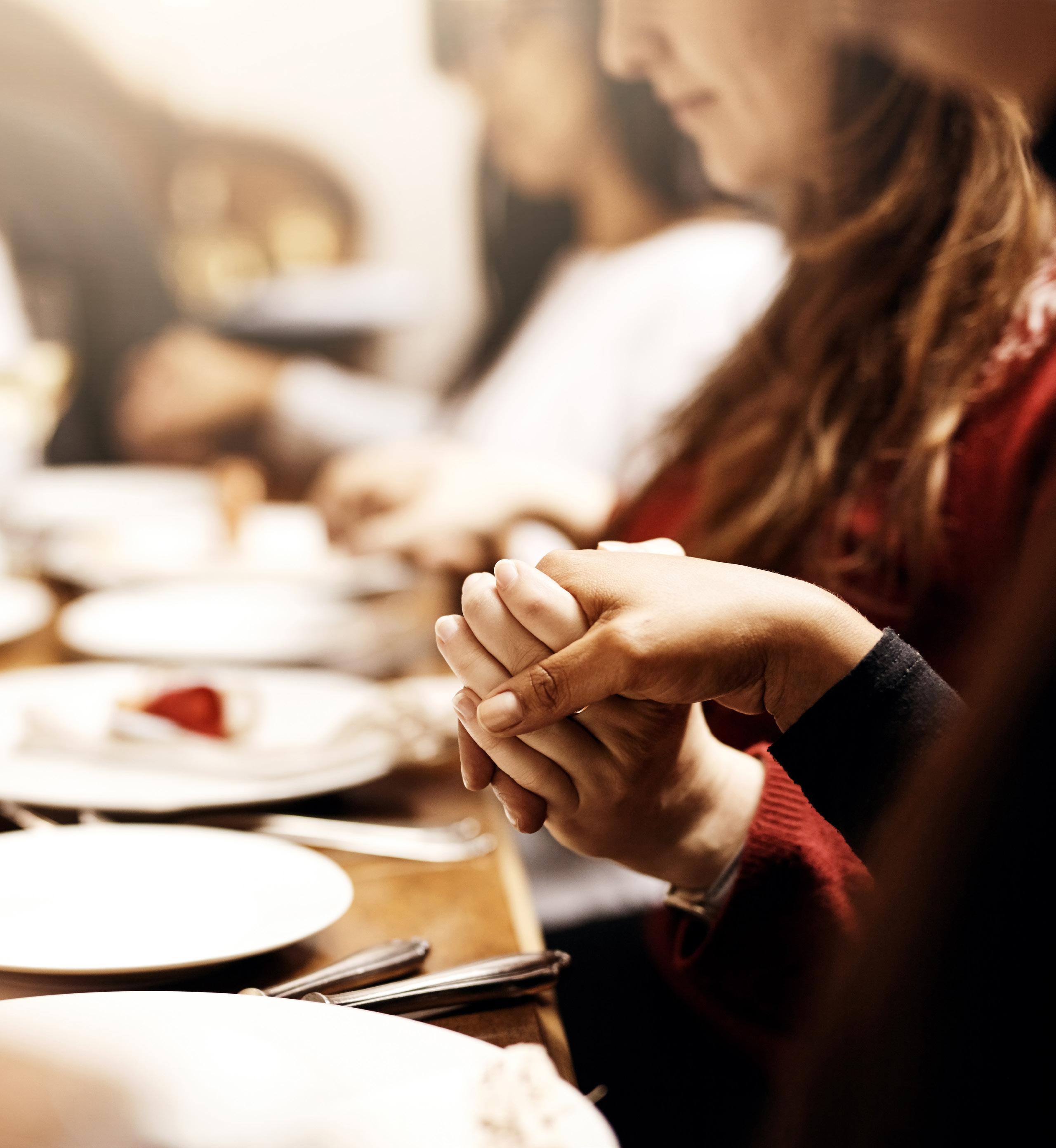
by Fr. Michael Himes
FR. MICHAEL HIMES, theology professor at Boston College, spoke to an overflow crowd at the popular C21 student speaker series Agape Latte about the power of faith and family. Here’s an excerpt from the talk:
My father died a number of years ago, and my mother was living alone for years. We knew that she shouldn’t be alone any longer, and so she decided to come and live with me, which I was absolutely delighted by. We had about 12 great years together here in Boston. My mother was an avid theatergoer and concertgoer, so we went regularly to the Boston Symphony and to theater here in Boston, and she’d show up at lectures at Boston College and at other universities because she just was interested in all sorts of things.
Finally, Mother began to show the signs, the unmistakable signs, of dementia, probably Alzheimer’s caused. Eventually, it came to the point where we couldn’t leave her alone for a moment. She would wander off. And so she went in to a nursing home. For the next seven years, I went every night to that nursing home and fed her, because they found it hard to get her to eat unless it was me feeding her. I would hold her hand and just talk about anything that popped into my head until Mother dozed off for the evening, and then I would head out.
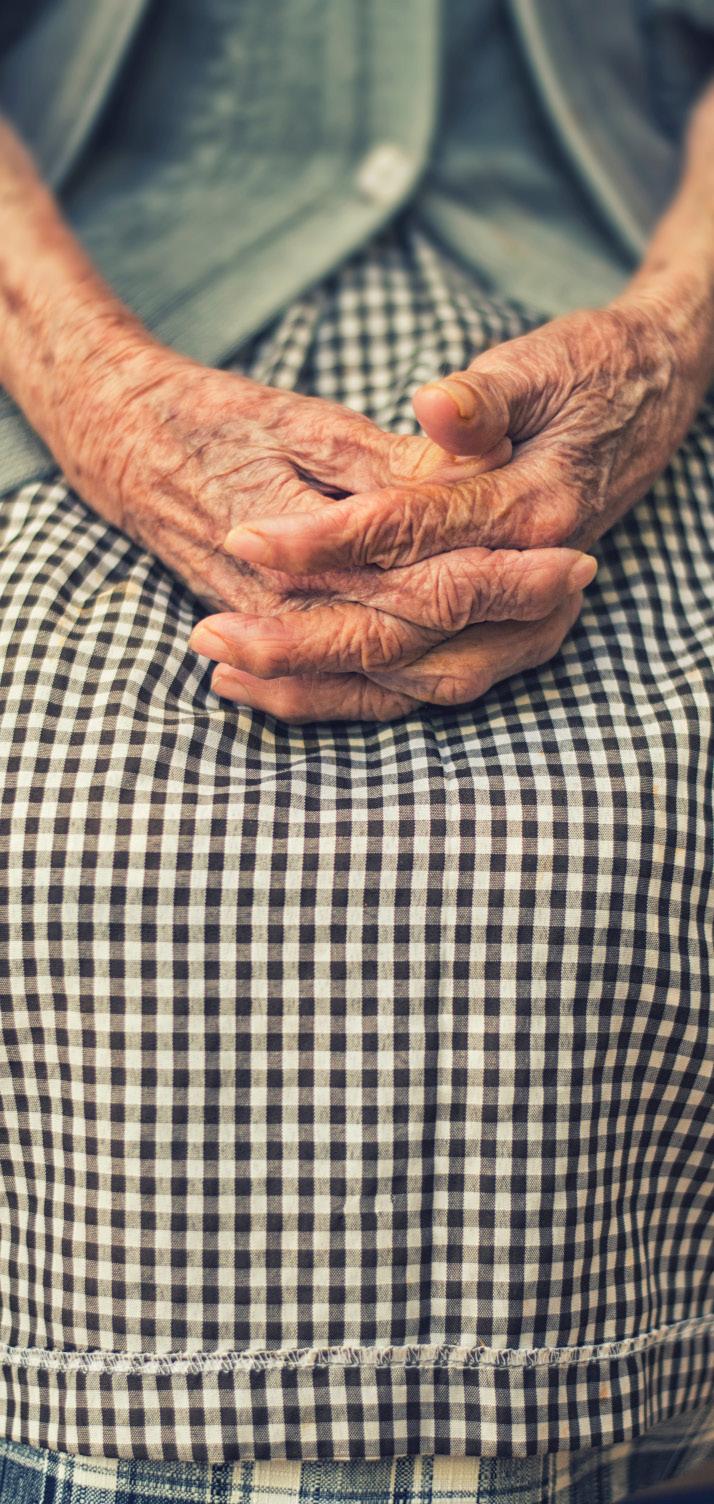
anybody. And I said to her, “Now, dear, do you know who I am? Do you remember who I am?” And she really scrutinized me. And then she said, “I’m sorry, I don’t know that I could remember your name, but I do know that you’re someone I loved very much.”
Well, I’ve always said to my brother Ken (a Franciscan friar) that Mother was the best theologian in the family, that the two of us were just amateurs compared to her, because she got it exactly right. You may forget everything else, everything else in your life may disappear. You may forget even who loved you and how they loved you. But you never totally forget having loved someone else. You may forget being loved, but you never forget loving, because it is the most central, the most important, the most fundamental of all activities, not being loved, but loving.
That’s what family gives us an intimate chance to do, in circumstances that may be very supportive or very painful, that we have the opportunity to give ourselves, to learn how to give ourselves to one another wisely and courageously and with tremendous forgiveness and deep acceptance.
About a year before she died—she passed away a year ago last January— Mother said she was having a particularly bad evening. She seemed really very distracted. She didn’t know she wasn’t recognizing
If you learn that, you’ve learned everything that you need to know. If you learn everything else and you never find that out, you’ve missed what it is to be a human being, because human beings are called to be the people who do what God is. God is agape, and we get to enact it. That is the most extraordinary statement about being a human being that I know.
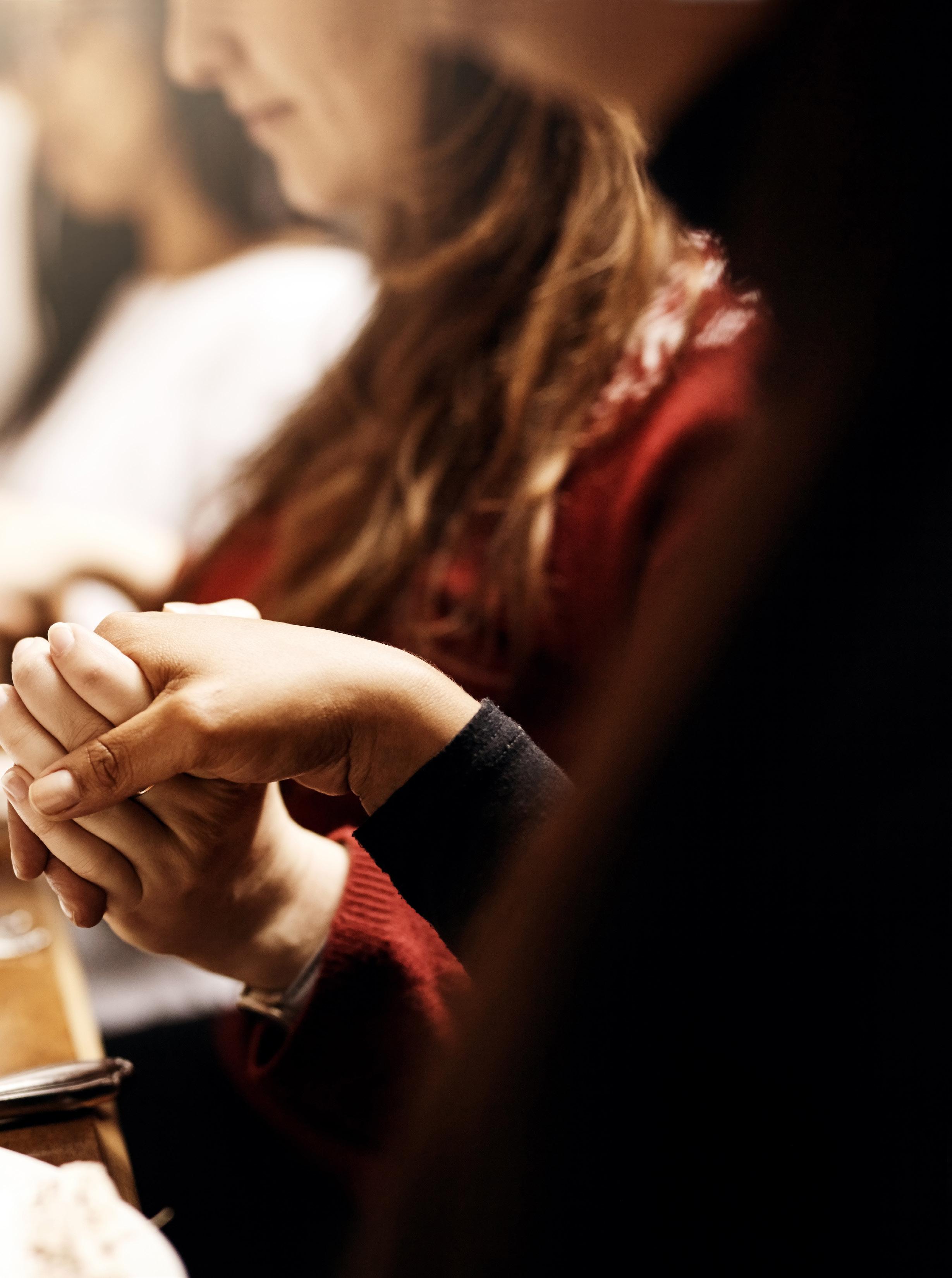
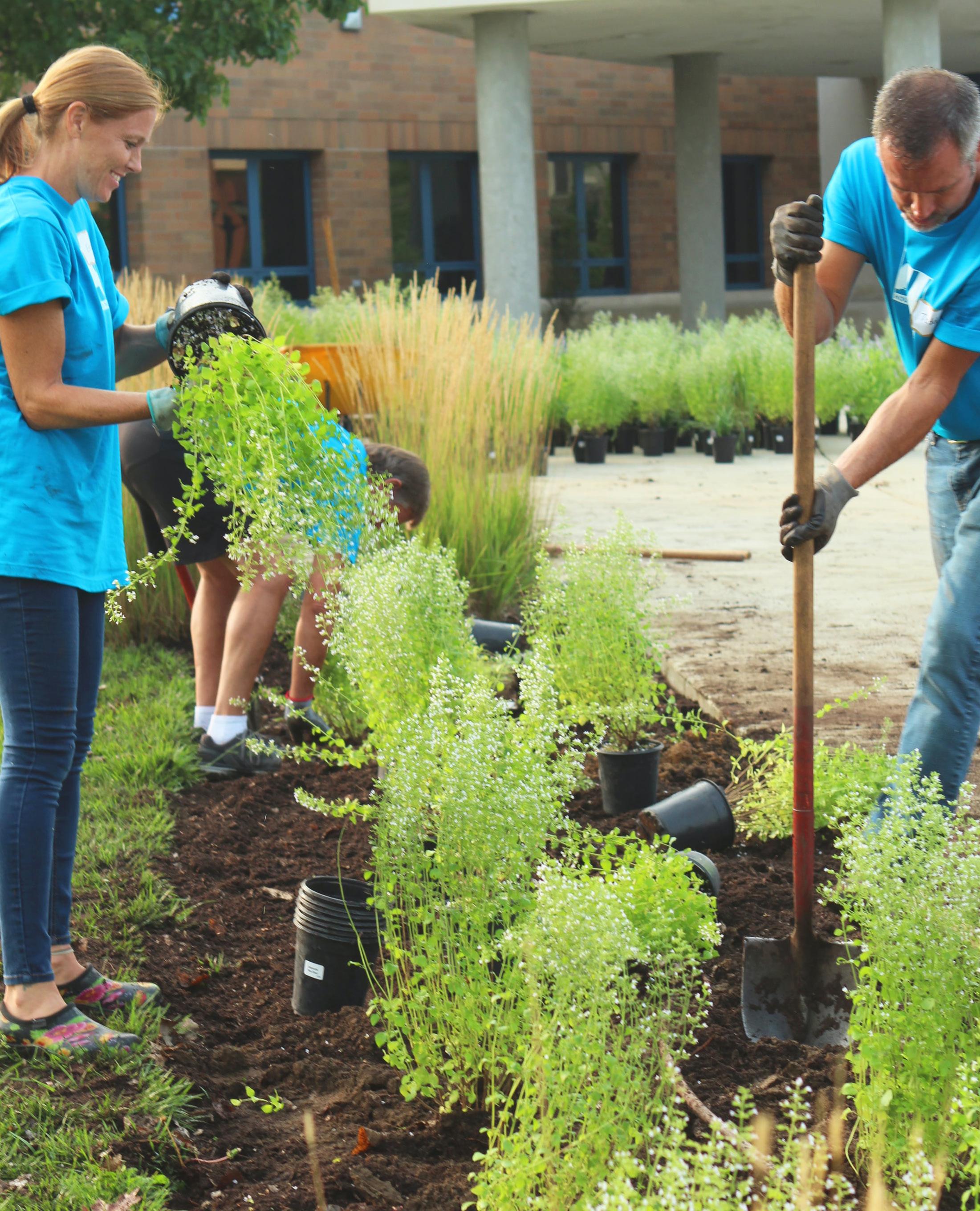
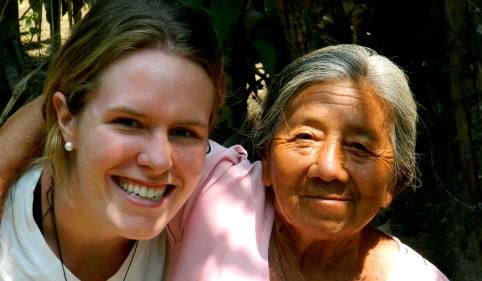
“Ten times a day something happens to me like this — some strengthening throb of amazement — some good sweet empathic ping and swell. This is the first, the wildest and the wisest thing I know: that the soul exists and is built entirely out of attentiveness.”
—Mary Oliver
By Meg Stapleton Smith
Before leaving for El Salvador, I had set high expectations for how I would spend my time there. I had crafted in my mind images of helping those whom I had not yet met, and waited in hopeful anticipation for a transformative semester. I had come to hold a firm belief that service for the poor was an essential aspect of my Christian faith. Yet, I was unaware that I had an enormous lesson to learn about what it really means to be a disciple of Christ. The Salvadorans taught me the art of presence, and brought me to an understanding on the beauty of being.
I lived in El Salvador in the spring of my junior year of college and studied with the Casa de la Solidaridad program. The study abroad experience is uniquely structured – three days a week are spent in class
while the other two days are spent accompanying an impoverished Salvadoran community. Every Monday and Wednesday two other students and I were led by our praxis site coordinator, Hector, up a volcano to a community called Las Nubes. The community is comprised of 24 homes, made up mostly of tierra (land), tin, and wire. The families do not have access to running water, electricity, or garbage collection. Despite the ever-present reality of extreme poverty, life in Las Nubes is simple and beautiful. Relationships are paramount, and conversations are held as sacred space where the Divine dwells.
We spent our first few weeks in Las Nubes going to each family’s home, introducing ourselves, and talking for hours over un cafecito. As we sat in the
hot Salvadorian sun drinking coffee, my mind drifted to thoughts about all of the things that needed to be done in this place that I was slowly learning to call my home. I could not be present with the very people who were with me in that moment because my heart was filled with an unnerving anxiousness and a grave frustration. Not only was I discouraged by my inability to fully comprehend the Salvadorans, but I had an unremitting desire to do something to fix the poverty that I was encountering daily. I began to carry around a small notebook and would fill the pages with plans for fundraising money for a new community center, or checklists of steps to urge the government to bring water to the community more often. With all that needed to be done in Las Nubes, I could not conceive any possible reason as to why we were just sitting around and talking. My mind and heart were overburdened with sights of extreme poverty, and I had succumbed to feeling powerless in the face of such systematic oppression.
Over the course of the first month or so, we developed a routine of stopping first at Nina Tancho’s home. Nina Tancho was about 80 years old, 4 feet tall, and had only one tooth that stuck out from her bottom gum. When we walked into her home on one particular Wednesday, Nina was sitting in a white plastic chair crying silently – her face buried in her hands. When I approached her to ask if she was okay, she did not look up. I distanced myself in discomfort and disappointment that I could not help her. Hector approached her and after whispering to each other for a few moments he suddenly got up and went into the house. He came back carrying a large plastic bottle filled with cooking oil. Hector reverently knelt beside her, poured the oil into his hands as if it were holy water, and with tender and loving compassion, started to gently massage the bottom of her right foot. Nina Tancho instantly began to scream and moan in agony. Without hesitating, I ran over and knelt beside her chair. I fought through the boundaries of discomfort that had once paralyzed me, and reached out to grab her hand. As her fingers tightened around mine, I was hit with the realization that in that moment, nothing separated us. I was not sitting from a distance thinking about her lack of health care, and writing down ways to fix it that seem like simple solutions from my own privileged perspective. As Hector slowly lowered her
foot to the ground, Nina turned to me as she wiped the tears from her eyes and said, “Gracias por sostener mi mano (thank you for holding my hand).”
Those simple words transformed my experience in El Salvador. As Mary Oliver describes, this was the empathic ping that left me so in awe of how utterly human both of us were in that moment. Although I could have chosen from hundreds of stories that are still so vivid in my mind, this one instance in Las Nubes remains my greatest lesson on presence and the beauty of being with another. For so long, I was convinced that I needed to do something while I was in Las Nubes, when the truth of the matter is, I simply needed to be there – fully present, fully vulnerable, fully myself. Through this action of vulnerability, and of dwelling in the unknown, love became palpable. The times when I would feel useless still occurred throughout the rest of my semester. Yet, everyday when I showed up at my praxis site, I was loved and accepted without condition. And everyday, people who had no reason to love me, allowed me to humbly walk alongside them. That is the root of accompaniment—to walk with those who suffer, and maybe even to hold their hands along the way. We enter into solidarity when we break the boundaries of separation that keep us from this connection. And it is in this understanding, that we touch the heart of the Gospel. Jesus was not a man for others, he was one with them.
The power of that touch was the transforming point of my entire Salvadoran experience. By holding Nina Tancho’s hand while she was suffering, I became completely lost in her reality. I thought I knew the Gospel, but in that moment, I began to read it in a different way. Jesus went to the margins and stood there. That was how he transformed the world. And so, he calls us to do the same. His resurrection continues to remind us that although we can say that we are followers of Christ, we are unable to reach the core of his message until we stand where he once stood. By my presence I was able to bear witness with great joy and simplicity to this Good News that I believe in. Solidarity is when we realize that our salvation lies in the love of one another—there is infinite beauty in that realization.

Author Meg Stapleton Smith reflects on her study abroad experience in El Salvador, which included coursework and service within an impoverished community. Meg recounts her preoccupation with fixing the immediate, material problems the community members faced as well as feeling overwhelmed by the injustices that kept the community in poverty and which seemed impossible to change. Through a simple encounter with one member of the village, Meg learns that her most important mission was to offer a ministry of presence - simply being with someone in a time of acute suffering and offering her the friendship of Jesus.
1. Have you ever accompanied someone in a difficult moment? What was it like? Did it feel like service, friendship, or both?
2. Have you ever done service in a community that is different from your own? Where was it and what did you do? Who did you meet and what did you learn?
3. If you haven’t done service in another community, have you ever been in a neighborhood or place different from your hometown? What were the encounters with local people like? What did you learn about their experience? Were there points of connection?
4. Jesus invites us to serve people who are marginalized wherever we find them. This includes the sick, the hungry and thirsty, the poor, and many others. Is there a person or group of people you know of who needs your help and could use your presence?

By Fr. Ken Himes, OFM
It’s the fall of 1968. I’m a sophomore in college. That academic year is a tough year. Martin Luther King is shot in April of ‘68. Bobby Kennedy is shot two months later in early June.
By now, I’m politically engaged, and I’d become absolutely cynical about making change through the system. The system is corrupt. The slogan that a lot of us had back then was, “Don’t trust anybody over 30.” Dylan used to sing about it.
So here I am, this cynical guy who doesn’t think much of anybody but people in my own generation. I’m convinced I know more than any adult in my family, and probably know more than some of my professors. They don’t get it. They don’t know what’s really going on.
And this guy, Noel Fitzpatrick, a young priest, moves into the dorm where I’m living. Noel is this incredibly charismatic guy. He wasn’t particularly good-looking, but he was smart enough. But he just had an energy about him. When Noel walked into a room, you would have noticed him right away. There
was a vitality there you could not overlook or ignore. Noel would sit up with us at night. We’d be sitting around in dorm rooms drinking beer -- back in those days in New York, you could drink at 18. We’re talking with Noel, and finally, at a certain point, I’m one of the last guys to leave the room one night. He said to me, “Himes, I got a question for you.” I said, “Father, what’s up?” He said, “Why are you so sarcastic?”
And I looked at him and asked, “What do you mean?” He said, “You’re very funny, but all your humor is at other people’s expense. All your humor is mocking. All your humor is putting other people down. You’re better than that, or at least, you should be better than that.”
So I thought to myself, maybe I should do something different. He gives me a little book on St. Francis of Assisi. Noel was a Franciscan.
He said to me, “Read this, it will be good for you.” So I read this little book on St. Francis that’s a reflection on his life.
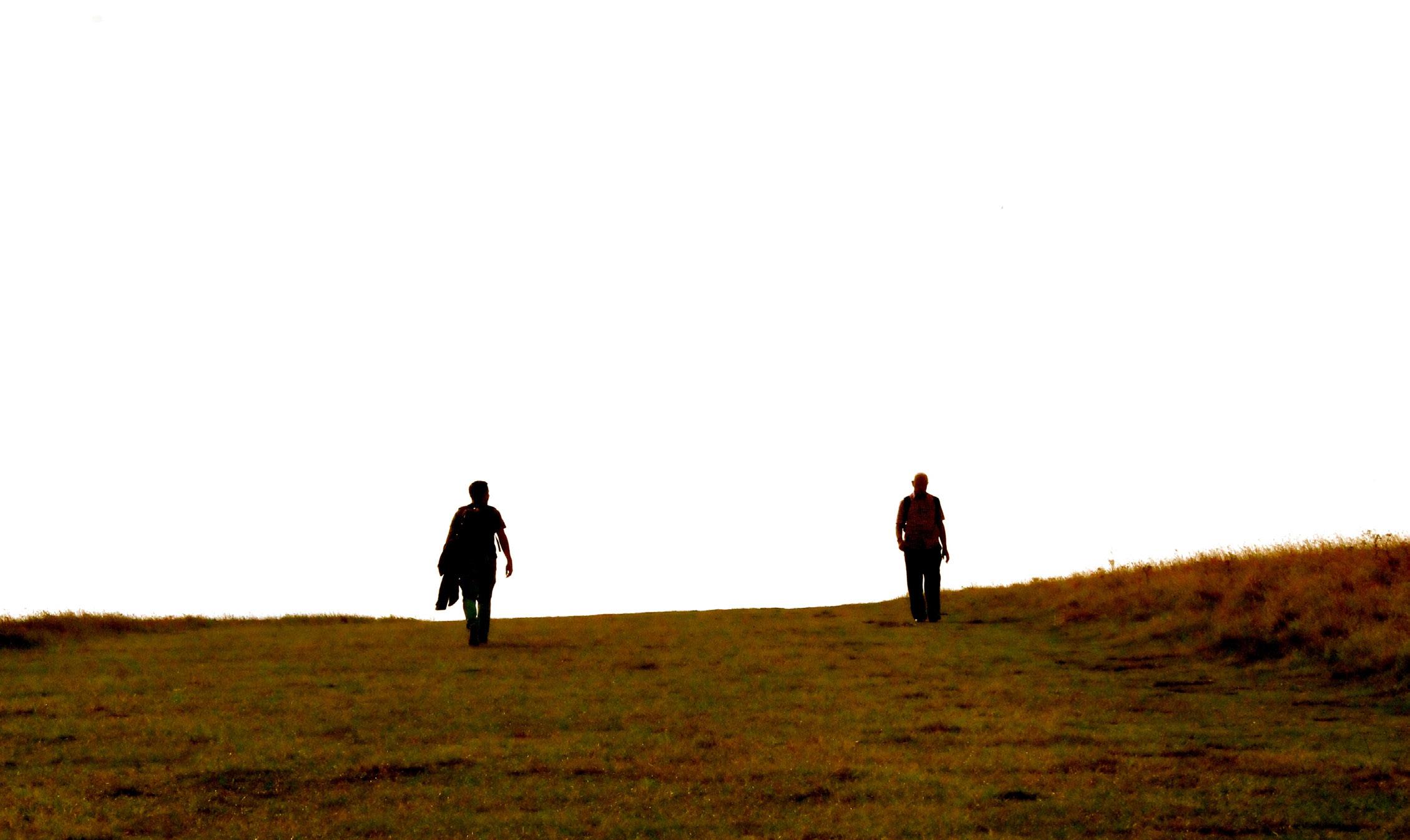
Chesterton was this famous British Catholic writer in the middle of the 20th century. And he has this one passage talking about how Francis sees the world differently. Francis used to go up into the mountains of the Umbrian Valley in Central Italy to be alone and pray.
Francis is up there, on one side of the Umbrian Valley, and he is looking back on the other side of it at Assisi, his hometown, the city that he loved so much: a solid, massive, walled, thick, heavy city.
Francis was something of a street performer. Chesterton says Francis may have done tumblesaults. And all of a sudden, in one of his tumblesaults, he sees the world upside-down. And now, this city that was so strong and solid, now upside-down, it’s hanging over the abyss. And the very thing that made it seem solid and strong now makes it seem terribly precarious: its weight and its mass.
Francis looked at this and he comes to the insight that all of existence is like this. All the things that we think make us strong, make us solid, make us safe, that all of that seen the other way makes us incredibly precarious.
What Francis comes to experience is that life is incredibly and radically contingent, meaning it need not be. Every human being is radically unnecessary. You and I need not exist. There’s nothing about us that makes us necessary.
So what do you do once you come to that awareness?
Chesterton says you’ve got two choices. One option is to say that it’s all random. It’s all an accident. Someone rolled the cosmic dice and it came up snake eyes -- I exist! I am, but I don’t have to be. It’s just by chance.
That was one option open to Francis. He doesn’t take it. The other option, Chesterton says, is that the only reason that we exist is because somebody willed to us into existence. The only reason I am is because somebody loved me into being. And what Francis comes to realize is that at the heart of it all is love. There is no other reason why any of us exist except for love. There is a divine lover who holds it all in place, who makes it all happen.
And all of sudden, the vision of Francis gives me another take on things. Noel Fitzpatrick introduces me to another way of thinking about the world.
The reason I bring this up is because in my own life, I think not only about Noel but of four other specific individuals who at certain points in my life saved me. I was screwing up my life.
I had a crappy attitude, a crappy frame of mind. I had no particular ambitions, I was angry in a sort of undifferentiated way, I didn’t know what the heck I thought anything was about. And at different points in my life, an adult came into it and said, “Himes, think about this. Himes, let me show you something. Have you ever experienced this? Have you ever thought about that?”
The point is, people came into my life that didn’t have to come into my life. These weren’t relatives, these weren’t people who owed me anything. But they took some time, they exerted some energy, they thought, “This guy’s worth talking to.” Mentors are one of the great gifts of life.
I hope you’ve had a few by now. They may pass through for a period of time. They’re there for a certain moment when you need them.
To have those kinds of people step into your life is a rich grace. That people would come along into your own life, tap you on the shoulder, and say, “Let me show you around a little bit. Let me maybe point out a few things you’re overlooking. Or some truth that maybe you are forgetting. Or some relationship that you need to straighten out.”
When I think about mentors, it leads me to thinking about gratitude.
We are, I am, you are because of a gracious God. Wake up every day and say, “Thank you, God. Thank you for this day. I hope I do something with it that’s worthwhile. I hope someone will touch my life or I’ll touch theirs.”
Fr. Ken Himes, OFM, is a Professor of Theology in the Morrissey College of Arts and Sciences at Boston College.

“Our chief want in life is somebody who will make us do what we can.”
—Ralph Waldo Emerson
Summary
In this excerpt from an Agape Latte talk, Fr. Ken Himes, OFM, shares how he encountered mentors at pivotal moments during his life. He recounts the role that one priest played in helping him to see the world – and himself –differently, which ultimately changed the course of his life.
Questions for Conversation
1. Have you had any mentors in your life who have helped you think about the world or your own life in a different way? Who are they and how did they shape you?
2. Have you ever served as a mentor to someone else? Did you plan on it or did it happen unexpectedly? Would you like to mentor someone?
3. What do you think are the qualities of a good mentor? What does Christian mentorship require?
4. What do you think about St. Francis’ conclusion that our dependency and contingency reveals God’s love for us?
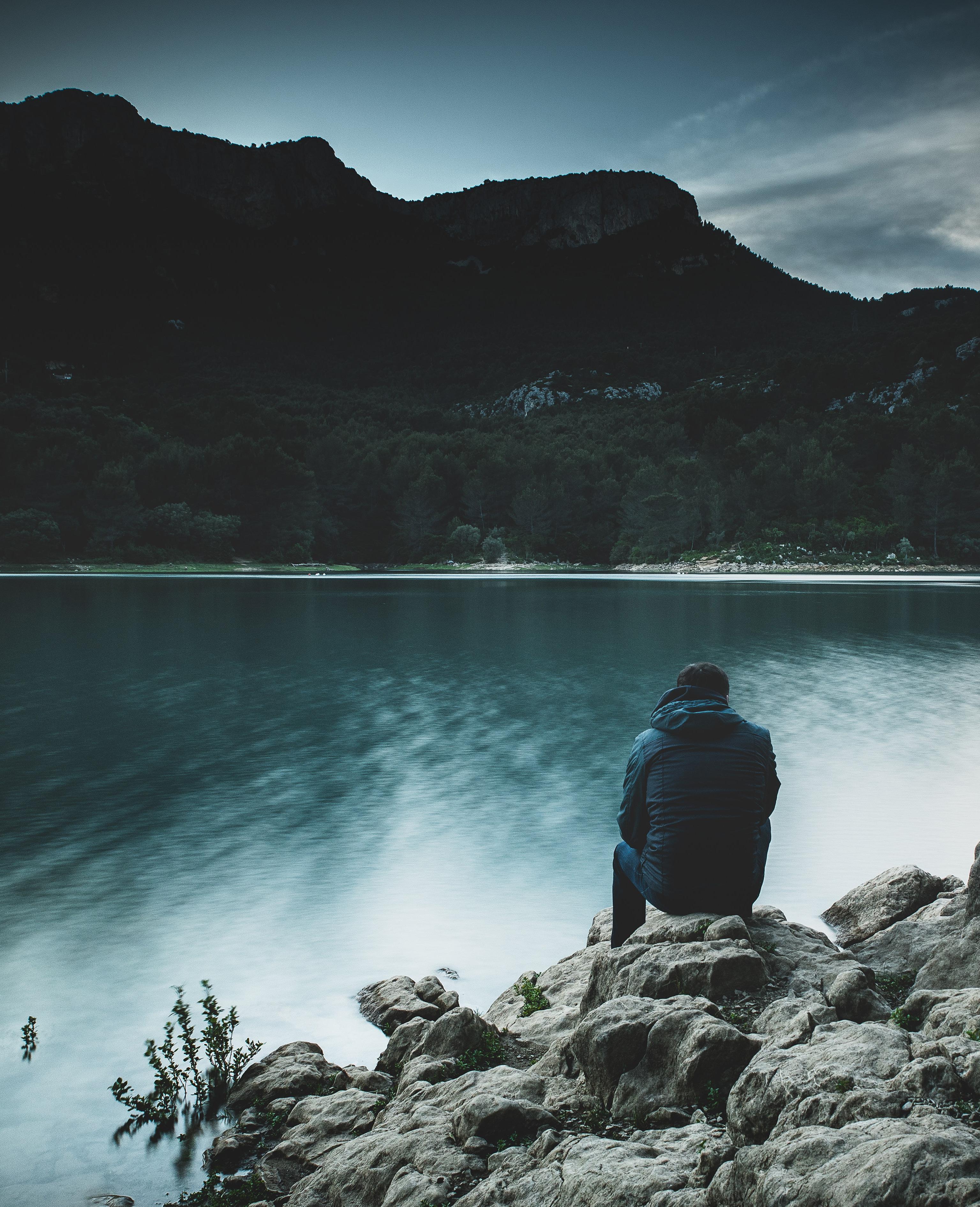
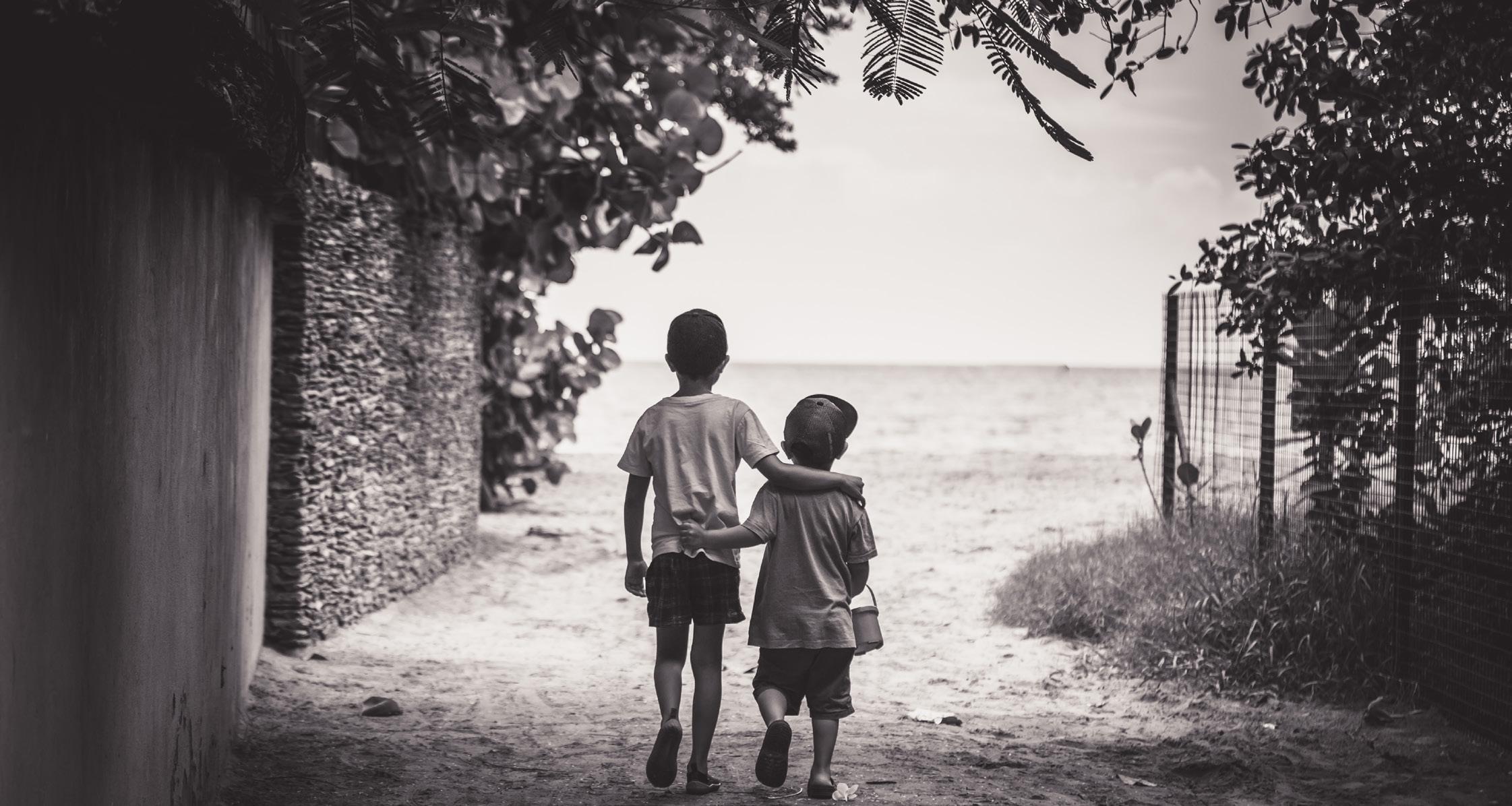
By Bennet Johnson
The conversation shifted from the topic of our lives after Boston College to our thoughts on finding a vocation.
“Is there a difference between a job and a vocation?” one student asked.
“How do I know if something truly gives me joy?” replied another.
Sitting in a circle at the Connors Family Retreat Center in Dover, Mass., I recently led a group of six seniors and an administrator from the university in a discussion centered around vocational discernment. Each of us voiced our hopes, fears, and anxieties about the future as participants on Halftime, a weekend retreat offered through the Center for Student Formation. Throughout the weekend, we tackled questions ranging from “Who are the conversation partners in my life?” to “What does the world need me to be?” As a group consisting of seniors increasingly worried about the future, it was rewarding to take a step back from our tumultuous lives at BC and reflect on what lies ahead after graduation.
I’ve found that authentic conversations like this have pushed me to challenge my views on the world. As a 21-year-old student, there are many issues I’m facing in my life: uncertainty about the future, managing relationships with friends, family, and significant others, balancing classes and extracurricular activities, and dealing with issues of social justice, to name a few. But I’ve learned that the authentic relationships I’ve formed with family, friends, roommates, and mentors, have shaped my personal character and moral conscience. These characters in my life have made me who I am today, and how I go about making future decisions.
I grew up in a suburb outside Minneapolis, Minnesota, and my childhood and family life revolved around one person: my brother. My brother Sam was diagnosed with Autism Spectrum Disorder when he was three years old. His first two years of development seemed completely normal. Before autism overtook him, he would constantly smile, giggle, and repeat
The conversation shifted from the topic of our lives after Boston College to our thoughts on finding a vocation.
“Is there a difference between a job and a vocation?” one student asked.
“How do I know if something truly gives me joy?” replied another.
Sitting in a circle at the Connors Family Retreat Center in Dover, Mass., I recently led a group of six seniors and an administrator from the university in a discussion centered around vocational discernment. Each of us voiced our hopes, fears, and anxieties about the future as participants on Halftime, a weekend retreat offered through the Center for Student Formation. Throughout the weekend, we tackled questions ranging from “Who are the conversation partners in my life?” to “What does the world need me to be?” As a group consisting of seniors increasingly worried about the future, it was rewarding to take a step back from our tumultuous lives at BC and reflect on what lies ahead after graduation.
I’ve found that authentic conversations like this have pushed me to challenge my views on the world. As a 21-year-old student, there are many issues I’m facing in my life: uncertainty about the future, managing relationships with friends, family, and significant others, balancing classes and extracurricular activities, and dealing with issues of social justice, to name a few. But I’ve learned that the authentic relationships I’ve formed with family, friends, roommates, and mentors, have shaped my personal character and moral conscience. These characters in my life have made me who I am today, and how I go about making future decisions.
I grew up in a suburb outside Minneapolis, Minnesota, and my childhood and family life revolved around one person: my brother. My brother Sam was diagnosed with Autism Spectrum Disorder when he was three years old. His first two years of development seemed completely normal. Before autism overtook him, he would constantly smile, giggle, and repeat words like “Mommy” and “Daddy” over and over again. But in the coming weeks, Sam gradually lost all of his vocabulary, and before my parents knew it, their
firstborn son seemed to be gone.
Ever since I was born, I have been immersed in autism. My brother today cannot speak, go to the bathroom, or take care of himself. Sam needs to be supervised 24 hours a day, and his behavior is often very challenging. Growing up, I was forced to deal with his disability on a daily basis, frequently helping my parents take care of someone who could not take care of himself. Needless to say, it was not easy. There were countless times when Sam would become violent and uncontrollably hit himself, often to the point where he was bleeding or would have a seizure. He was a nightmare outside of the house, regularly letting out deafening shrieks and crying on a daily basis. He would often break down in public, drawing sharp glances and whispers from strangers. My parents and I would try everything we could to calm him down during these difficult times, but we often failed.
Whenever I see a child with autism, I know that family has a difficult situation. It certainly is not easy caring for an autistic child. However, helping take care of my brother has been an irreplaceable part of my life and has shaped who I am today. I have become more flexible as I’ve dealt with Sam’s odd behaviors. I am also more empathetic and compassionate as I’ve seen how countless doctors, therapists, teachers, and social workers continue to help Sam and my family on a daily basis.
Coming to BC, my brother has had a significant influence on my decision-making process and how I choose which people to let in my life. The love shown by my parents and caretakers of my brother is something I inherently seek in my relationships with others.
In the Nicomachean Ethics, Aristotle references three different levels of friendship. The first, or lowest level of friendship, is a friendship based on utility. This is a friendship where two people derive some mutual benefit from each other. He views this friendship to be shallow, or easily dissolved. The second level is a friendship based on pleasure. Aristotle describes how both of these kinds of friendship are short-lived

“The process of discernment is to continually ask, ‘What is it that I most deeply desire?’ There cannot be a difference between what we most deeply desire and what God desires for us. And the realization of where those two meet is our vocation.”
—Fr. Matt Malone, SJ
Boston College alumnus Bennet Johnson shares a reflection about his vocational discernment and concludes that the greatest influences on his thinking involve his family, true friends, and meaningful discussions about life’s big questions with good conversation partners. Johnson’s vocational search has been shaped by the support his family has offered to his brother with special needs, as well as his desire to join his friends in search of what constitutes a meaningful and good life.
1. Our vocations are influenced by our desires, hopes, the people we know, and our life experiences. What is shaping your vocational discernment?
2. Johnson proposes that friendships rooted in the good are necessary for our self-discovery. Do you have friendships that push you to be a better version of yourself? Do you consider yourself a “friend of the good”?
3. The discernment of one’s vocation is as much about what one wants to be as it is about what kind of person one wants to be. Do you spend time thinking about the type of person you want to be? What are the qualities you hope to cultivate at BC and beyond?

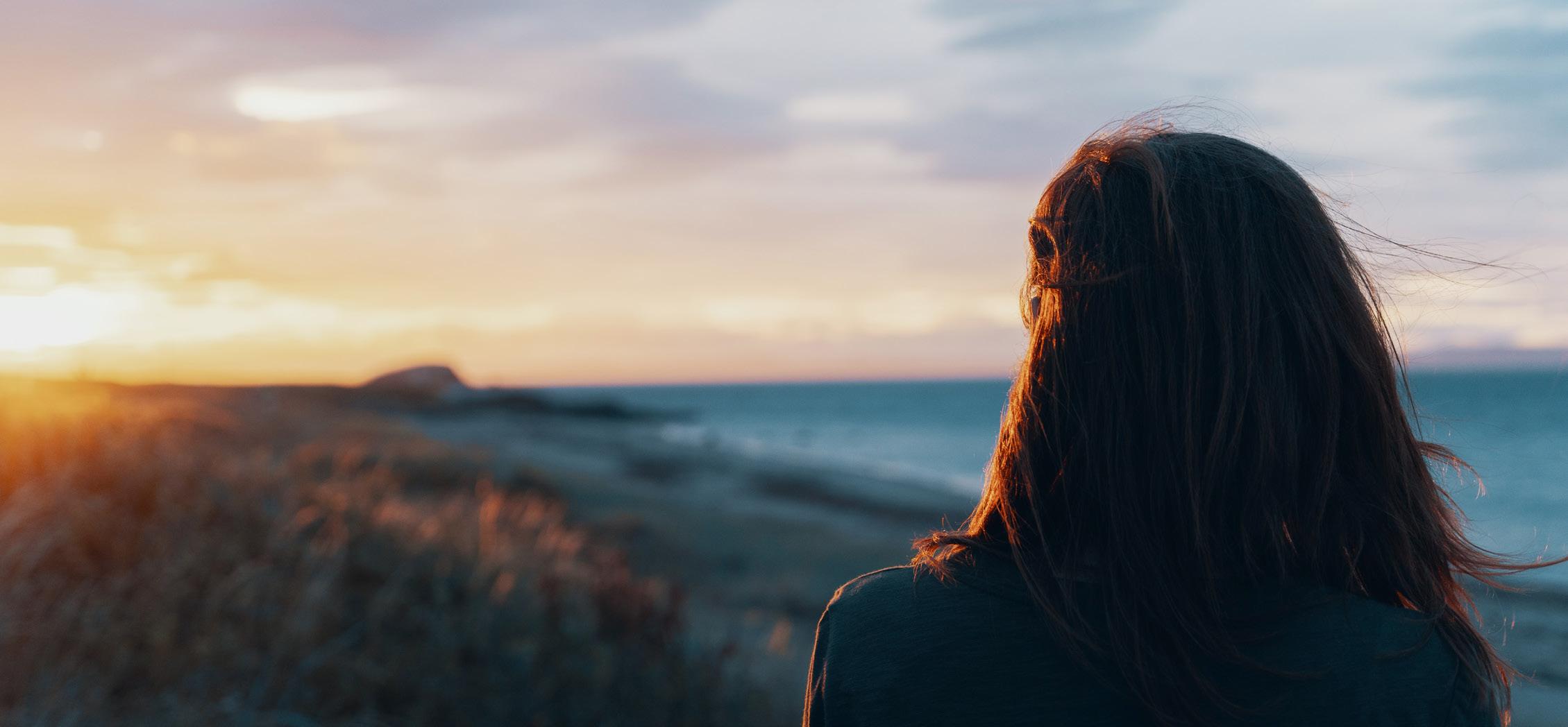
By William P. Leahy, S.J.
It has been very helpful for me to reflect on my deepest and most consistent desires. I think in the case of a lot of people that I have known who have made decisions either to be priests, to get married, or to choose a major, it has been very helpful for them to reflect on their deepest and most consistent desires. I am a firm believer that those deep and consistent desires are an invitation from God to consider a way of action.
In the Roman Catholic Church, there are two types of priests. There are diocesan priests who primarily work in parishes and there are religious order priests, like Jesuits, Benedictines, and Franciscans. In my case, for most of my life I had only known diocesan priests. Yet there was this drawing and this interest in being a Jesuit. I ultimately made my decision to be a Jesuit because I felt drawn to that.
God does not coerce. God does not force us. He invites and he acts out of our desires. He draws us to Himself. St. Benedict urged his monks, the Benedictine community, to “listen with the eyes of the heart.” That is a great thing for all human beings to do. Listen with the eyes of the heart. To do that means you have to have some quiet time and you have to be able to begin identifying what is going on inside you.
In my mind, one of the marks of a mature person is someone who can identify, accept, and articulate feelings. That is why desires are so key. The founder
of the Jesuit Order, St. Ignatius, was always urging Jesuits to listen to their desires, to act out of these deep, consistent desires, because in those, God is inviting us—not forcing, but calling.
So many things go on in a life of faith. Some of us are born into a community of faith—Catholic, Protestant, Jewish, Hindu, Muslim, whatever. The challenge is how do we nourish it? What nourishes your faith? What happens in your life that gives strength to you, that helps you grow to be a better human being? What calls you to assist other people?
In my case, I learned a lot from my peers. I have learned a lot in my classes. I have learned a lot in conversation. All those are hugely important in helping us to develop our faith lives.
When I entered the Jesuit Order, I had no idea that I would ever end up in Boston. In fact, at age 19 I didn’t even know Boston College existed! I certainly had no though that I would someday be here. But, God works.
William P. Leahy, S.J. is the 25th president of Boston College.

“The founder of the Jesuit Order, St. Ignatius, was always urging Jesuits to listen to their desires, to act out of these deep, consistent desires, because in those, God is inviting us—not forcing, but calling.”
—William P. Leahy, S.J.
Summary
In his Agape Latte talk, William P. Leahy, S.J., president of Boston College, shared with students his faith story so that they could be attentive to their own faith story.
1. Can you think of a time, either during a struggle or a transition, when you felt God working?
2. How did you sense His presence or discern His will?
3. What could you do to still yourself and notice the movements of your desires?
By Mary Troxell

I’m of a certain age where you look back and think, “What have I done right? What have I done wrong?” Some of the biggest blessings in my life are as much a result of my mistakes as they are a result of my successes.
They say that God draws straight with crooked lines. It’s a more prosaic way of saying what the New Testament says in the Letter to the Romans, which is “We know that all things work for good for those who love God.”
My first mistake was becoming Catholic. I call it a mistake because at the time it just felt like a disaster. I was raised in an evangelical church. My parents were very devout. We had very long services which are very joyous and jubilant. There was dancing in the Spirit, praying in tongues, and prophecies.
But throughout all of these very intense meetings, I never experienced God. One of the reasons I couldn’t wait to go to college was so that I never had to go to that church again.
So when I got to college I considered myself an atheist, a Marxist feminist. That was sort of my tag. And so were all my friends. You can imagine: we were very leftwing, very progressive, social activists, and outspoken.
In my senior year, I saw my friends sending their resume everywhere looking for a job. I realized I was not up to the task. So I stayed in the town where I went to college and lived with a couple of my friends. I got a slacker job: I worked at a tanning salon.
During that time I read a lot of books including Dostoevsky. And I realized that I didn’t think communism really spoke to the human condition. The understanding of human nature articulated by Marx wasn’t really tenable. And by reading Nietzsche, I realized that I didn’t have the stomach to be an atheist.
I decided that I was going to apply for jobs in South Florida where I’m from and where the market was better. I moved down there, and while I was waiting to get a job, I decided to go to a Catholic church. And this is very strange. I didn’t go with anybody. I didn’t
discuss it. I just went to a Catholic church one Sunday.
By the end of that Mass, I knew that was going to be the most important thing in my life for the rest of my life. It was a transforming experience, like no other experience I’ve ever had. And I was kind of confused, because here I was, with these evangelical parents and these progressive, activist, feminist Marxist friends. And I knew that I had to become Catholic. That’s why I call it a disaster.
I knew telling my parents would be devastating. In my parents’ church, Catholicism was not considered Christianity. So to tell my parents that I was going to become a member of a faith that would impede my salvation was extremely difficult.
At this time I had never done anything that displeased my parents. So telling them was brutal. I didn’t know if our relationship would ever be the same.
At the same time none of my friends were religious. Nobody had any religious orientation that they practiced at all. None of my professors, from what I knew, were religious.
It was such a strange thing to declare that I was going to be a Catholic. For a Marxist feminist, Catholicism is about as bad as it is for an evangelical. I mean, the Catholic Church is patriarchal and has had a hand in most of the systems of oppression in the Western world.
I was afraid that my friends wouldn’t understand me or would think that I joined a cult.
But my relationship with my parents was better after I became a Catholic, because I was so full of joy, so at peace and centered. It was so what I was supposed to do. And once my parents saw that, they began to accept it. It wasn’t overnight. But a couple of years later, they were happy for me. They actually converted to Catholicism about 10 years after I did.
The same thing happened with my friends. Once they saw how much joy and peace it gave me, they were accepting, at least open to at least hearing what I had to say about it.
Mistake number two comes out of those resumes. I went to a college where nobody talked about vocation. The idea was that you graduate with a liberal arts degree and then do something for a living that has nothing to do with what you studied.
So that’s what I did. I got I got a very good job at
a bank. The first year I really liked it, because it was like a mini-MBA program. I learned a lot, and it was fun. But after the second year, I realized I didn’t like it much. And by the third year, I realized I couldn’t stand it. Now, meanwhile, I kept getting promotions.
Six years in, I thought this was my life for good. Changing your career after six years at that age felt absolutely impossible.
I had this best friend from sixth grade named Theresa who sat me down in a sort of intervention and said, “Mary, you’ve become a shadow of yourself. You used to talk about ideas all the time. Now, all you talk about is money. You’re materialistic. You’re shallow. You’re not an interesting person anymore. And you’re not the person that I love and I’ve loved for all these years.”
And when she said it, I knew she was right. I mean, I really knew she was right. So I applied to graduate schools for philosophy.
I called my brother, who was a philosophy major, and I asked him, “Where do I go to grad school where I can read the books that you read?” He said, “I think Catholic schools do this kind of philosophy.”
I knew Catholic University was Catholic because of the name. So that’s the only school I applied to because part of me felt like if I get in, I’ll go. And if I don’t get in, I’ll stay at the bank.
And that’s what I mean about being glad it took me six years. Because if I’d asked an advisor right out of college where to go to graduate school, they never would have suggested any Catholic school and certainly not Catholic University.
And that was the best decision. I couldn’t have gone to a better place. I developed a faith community. I met other people who wanted to talk about their faith and how to integrate it with the rest of their lives. And that was incredibly rich for me.
I saw professors who thought that teaching was a vocation. Most of my professors were priests, and they used philosophical texts as a way of helping them to think more carefully about the big questions, about meaning, ethics, integrity, and authenticity. And that was extremely exciting for me.
I fell in love with philosophy all over again.
Mary Troxell is an Associate Professor of the Practice of Philosophy at Boston College.

“Above all, trust in the slow work of God.”
—Pierre Teilhard de Chardin, SJ
Summary
In her Agape Latte talk, professor Mary Troxell shares two of her “favorite mistakes,” decisions which felt like derailments but which wound up bringing her unexpected joy. Troxell shares about her journey to becoming Catholic and the long and winding road she took to become a professor of philosophy. Ultimately, Troxell shares that her life is a testament to the truth that God can bring good out of all things.
1. Do you agree with Troxell that God brings good out of all decisions and circumstances? Why or why not?
2. Have you ever made a decision which felt like a mistake but which wound up being a blessing?
3. Pope Francis often says that “God is full of surprises.” Where are surprising places or experiences in which you have found Him?
St. Thomas More (1478-1535)
Father in heaven, you have given us a mind to know you, a will to serve you, and a heart to love you.
Be with us today in all that we do, so that your light may shine out in our lives. Through Christ our Lord.
Amen.
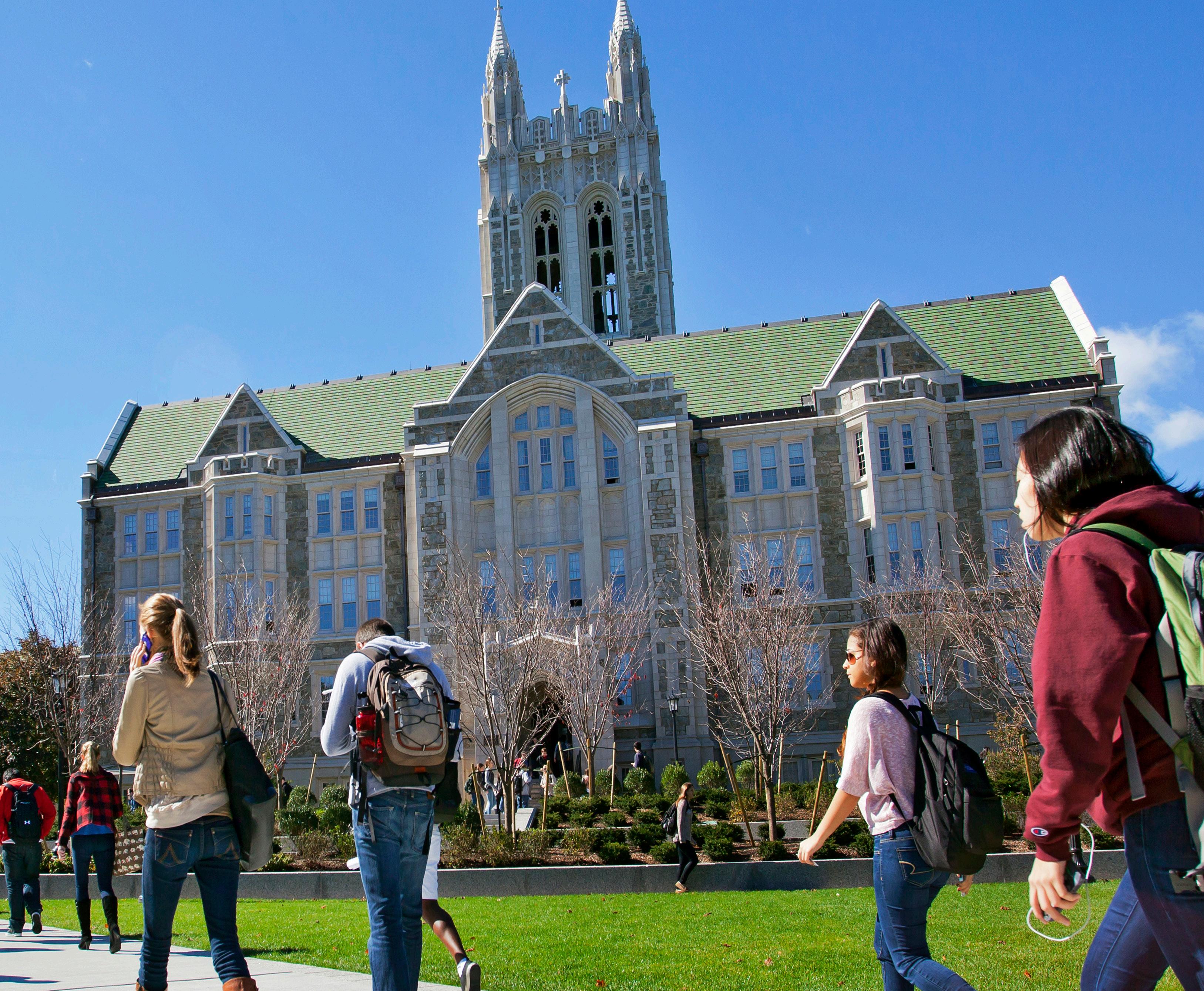
For more information about Faith Feeds, visit bc.edu/c21faithfeeds
This program is sponsored by Boston College’s Church in the 21st Century Center, a catalyst and a resource for the renewal of the Catholic Church.
(617)5 52-0470 • church21@bc.edu • bc.edu/c21

